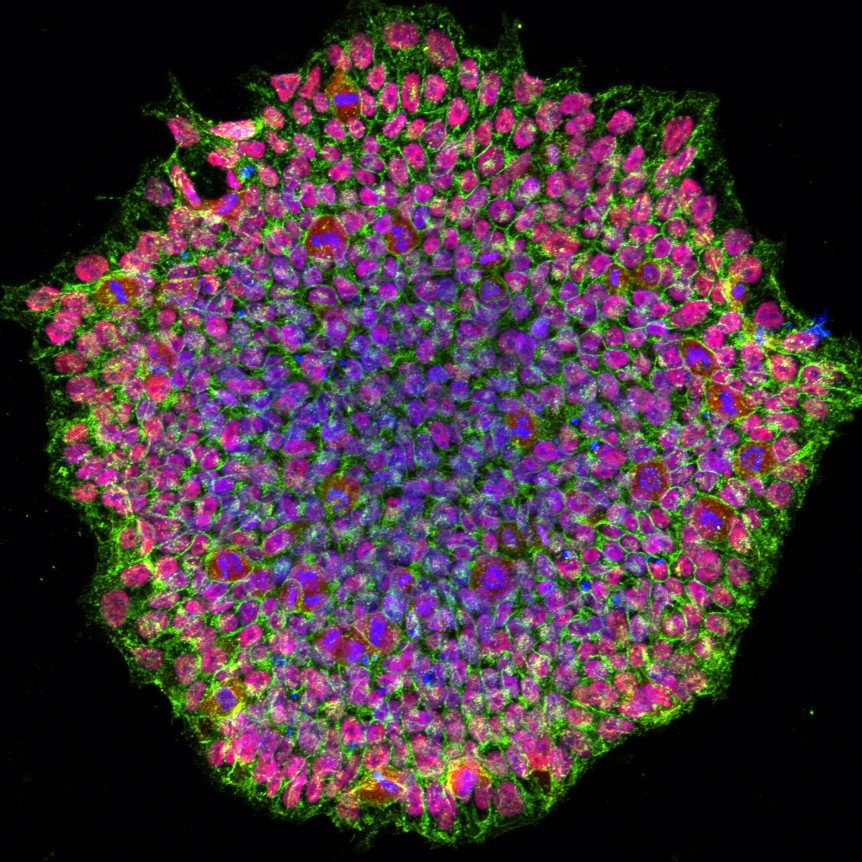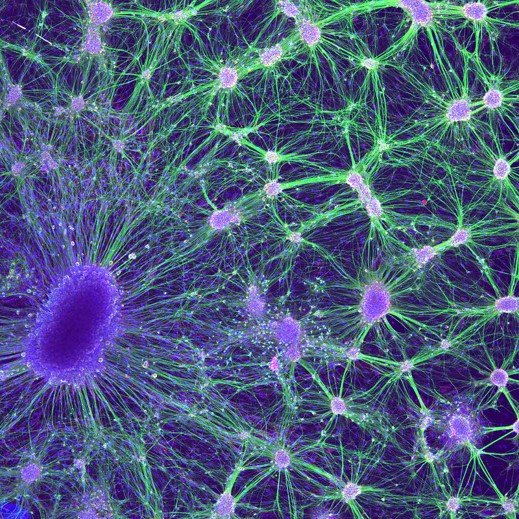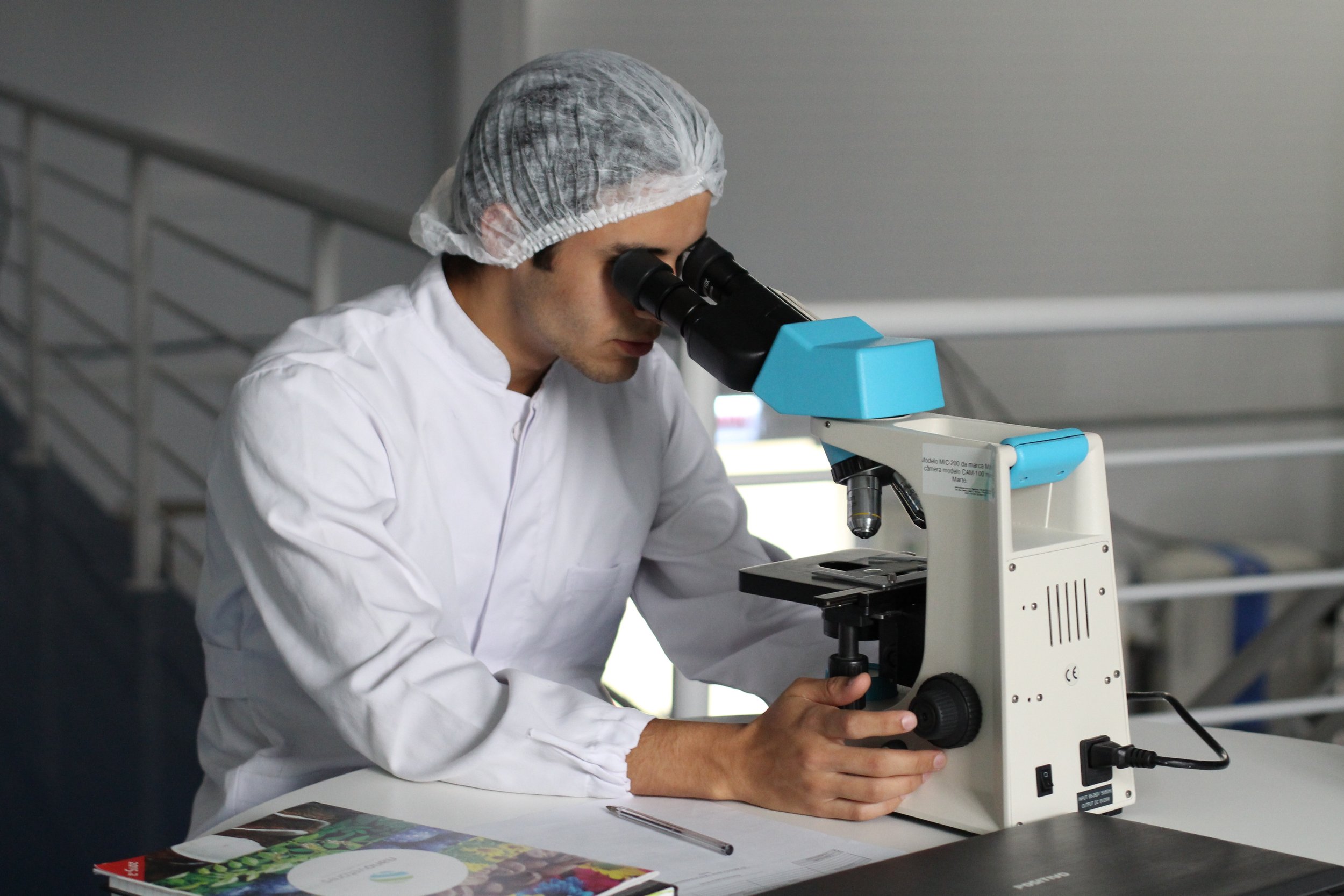Induced Pluripotent Stem Cells
Human induced pluripotent stem cell colony
Induced pluripotent stem cells are cells that have been engineered in the lab by converting tissue-specific cells, such as skin cells, into cells that behave like embryonic stem cells. Induced pluripotent stem cells are critical tools to help scientists learn more about normal development and disease onset and progression, and they are also useful for developing and testing new drugs and therapies.
While induced pluripotent stem cells share many of the same characteristics of embryonic stem cells, including the ability to give rise to all the cell types in the body, they aren’t exactly the same. Scientists are exploring what these differences are and what they mean. For one thing, the first induced pluripotent stem cells were produced by using viruses to insert extra copies of genes into tissue-specific cells. Researchers are experimenting with many alternative ways to create induced pluripotent stem cells so that they can ultimately be used as a source of cells or tissues for medical treatments.




